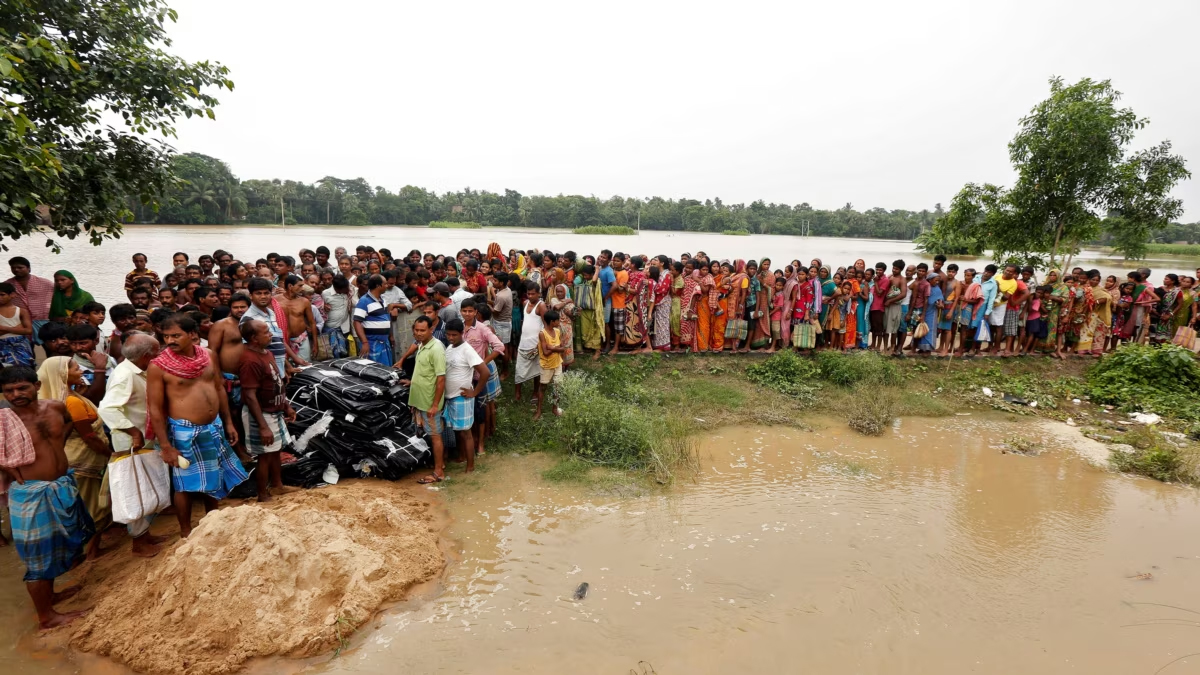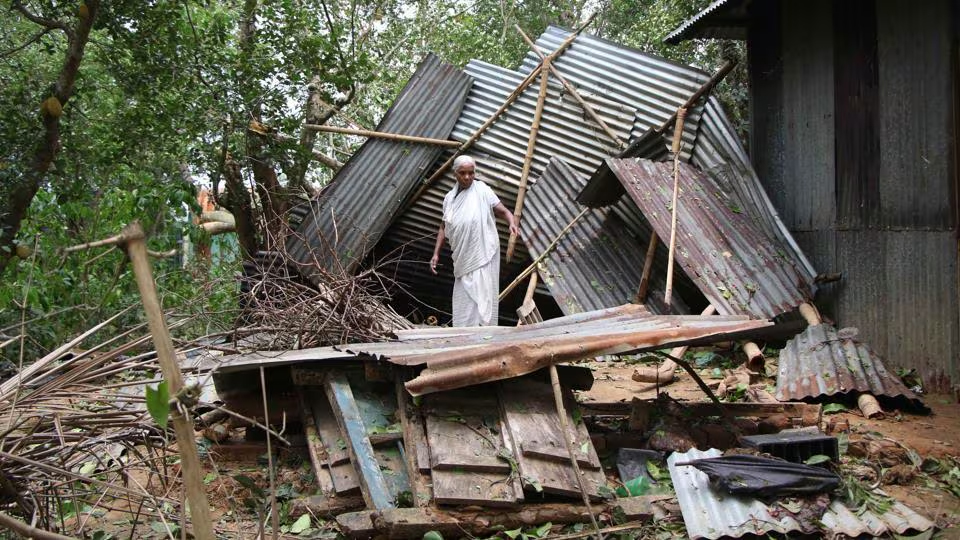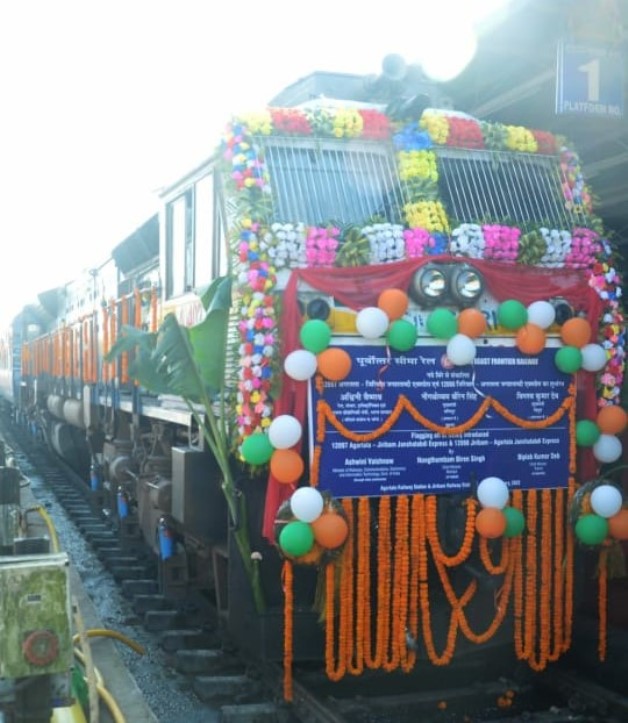People internally displaced in the face of tribal conflicts continued streaming into Peku Chara in Tripura’s Panisagar, with the situation turning graver by the day following the influx of new families
 KRC TIMES NE Desk
KRC TIMES NE Desk

People internally displaced in the face of tribal conflicts continued streaming into Peku Chara in Tripura’s Panisagar, with the situation turning graver by the day following the influx of new families.
It has been nearly five days since the initial influx of internally displaced people. However, it was alleged that no measures have yet been taken by the authorities to rehabilitate the displaced families.
Meanwhile, the area continues to experience an ever-growing influx of people fleeing violence and conflict each day.
The initial wave of internally displaced people arrived on Saturday, last week, with 14 families settling in Ward No. 5 of Peku Chara.
The following day, this number swelled to 27 families. Over the subsequent days, the number skyrocketed, and currently, over a hundred families are living under an open sky, braving the elements with no proper shelter or facilities.
The crisis stems from conflicts involving local tribes that have forced these families to flee their homes. These tribal disputes have escalated tensions in the region, leading to large-scale displacement and contributing significantly to the evolving situation in Peku Chara.
The alleged encroachment on forest land prompted a visit from AM Kanpode, the principal chief conservator of forests, accompanied by other senior officials, including the North District forest officer. The delegation arrived at Peku Chara around noon on Wednesday to inspect the area occupied by the settlers fleeing internal conflicts.
Despite the prevailing state of affairs, the officials concluded their visit without making any public statements or announcing any relief measures. The displaced people, many of whom are living in makeshift shelters, continue to await assistance amid growing uncertainty and deteriorating living conditions.
Residents and humanitarian groups also raised calls for the state government to urgently address the crisis while stressing the need to provide adequate shelter, food, and medical aid to the affected families. The situation remains critical, and the delay in the government’s response has compounded the hardships faced by the refugees.
As the number of displaced families continues to rise, the need for swift and effective intervention has become increasingly urgent to prevent further escalation of the humanitarian crisis.
“We have been here for about five days now. We have been facing hardships due to the inadequate provision of water, food, and electricity. We are also worried about mosquito bites. The foresters are also creating problems. The government is yet to extend support. Some of us are battling medical issues. Many are starving. Officers of the forest department visited the area but did not interact with us. Pressure from the tribal communities is largely to blame for our current plight. They disturbed our way of life and displaced us from our homes. We want strict action against the perpetrators and support from the government,” one of the refugees told.
Promotional | KRC TIMES






